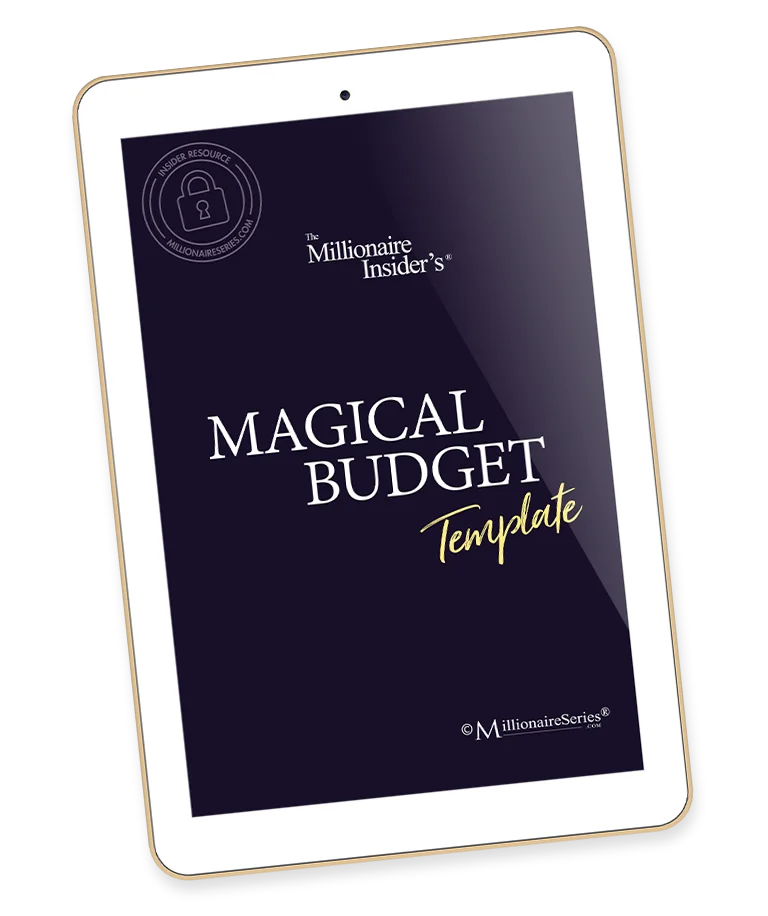5 Strategies to Reign in Excessive Spending and Achieve Financial Success
Today, excessive spending has become a common habit.
It can become a vicious cycle leading to:
- Financial stress
- Marital discord
- Mental health challenges
The allure of instant pleasure often tempts individuals to spend beyond their means, jeopardizing their long-term financial stability.
And while it is easy to think that because you have plenty of money or income, excessive spending isn’t a problem.
The reality is that overspending can negatively impact you regardless of your current financial status. And it often wreaks havoc on even the best-intended retirement. Telling a person to stop overspending is as effective as telling an obese person to stop eating. This usually produces guilt, shame, and frustration and rarely works.
On the other hand, you can curb excessive spending by adopting a proactive approach and implementing these strategies. This article will help to pave the way toward a healthier financial future.
I will teach you practical tips to help you regain control over your spending habits and achieve financial success.
Your financial decisions today will determine more about your financial future than almost anything else you do.
Disclosure
The Millionaire Insider® copyrights all materials and intellectual property.
This information is for educational purposes only. It is not intended to replace the advice of any advisor or specialist, nor to provide investment, financial, tax, retirement, planning, or healthcare advice.
Always consult with a qualified professional before making any financial decisions or changes.
1. Assess Your Financial Situation

The first step towards curbing excessive spending is understanding your finances. Analyze your income, expenses, debts, and savings to identify areas where you overspend. Track your expenses in detail for a month to get a clear view of your spending patterns. When you track your expenses, you gain valuable insight into your financial behavior and highlight potential areas for improvement.
2. Create a Realistic Budget
Once you have a clear picture of your finances, it’s time to establish a realistic budget. Like a diet, succeeding is hard if your budget is too restrictive.
Start with where you are, then work daily to improve your spending plan. Tracking your spending is a great place to begin.
If you need support with your spending plan, click here:

List your essential expenses, such as housing, utilities, groceries, and debt payments. Allocate a specific portion of your income to each category, ensuring your expenses do not exceed your income. Remember to leave room for additional spending needs but set limits to avoid impulsive purchases. Use budgeting apps or spreadsheets to track your expenses and monitor your progress regularly.
3. Identify Wants and Needs
Excessive spending typically occurs when you do not separate want and need expenses. Take a step back and critically evaluate each purchase. Ask yourself if it is a genuine necessity or merely a desire. By separating need and want expenses, you can avoid impulse buying and save money in the long run.
Mindful spending involves being fully present and intentional when making purchasing decisions. Before buying an item, pause and ask yourself if it aligns with your financial goals and values. Consider alternatives, research prices, and evaluate whether the purchase will bring genuine value to your life. By embracing a more deliberate approach, you can reduce impulsive spending and direct your resources toward what truly matters.
The first step is to determine where you overspend.
A simple solution to overspending at the grocery store is to:
- Create a list of food you need.
- Shop online for your food, and
- Use a delivery service.
If you make purchases while scrolling social media, remove your credit card from your phone.
4. Implement a Savings Plan

Building a habit of saving is an essential first step. It is also crucial to curb excessive spending.
Some ideas may include that you:
- Save a portion of your income before allocating funds for expenses.
- Establish an emergency fund to cover unexpected costs.
This will help you avoid using credit cards or loans for emergencies. - Automate your savings or investing.
This strategy ensures that saving becomes a priority and reduces the temptation to spend frivolously. - Open a separate bank account if your partner overspends on your joint account.
Then, deposit money you don’t need into the second account so your partner can’t access it.
5. Identify Overspending Triggers and Implement Strategies
Specific events or emotions often trigger excessive spending.
Examples may include:
- Stress
- Boredom
- Social pressure
- Marital problems
- Overwork
Once you determine stressors that trigger spending, you can find healthier ways to react.
A great strategy is to develop alternative coping mechanisms that don’t involve spending money.
Examples that don’t break the bank include:
- Walking or hiking
- Meditating or focus breathing
- Chanting, yoga, praying, or singing
- Exercising
Tips to Stop Spending Money
Compulsive spending can quickly lead to financial stress and money problems.  To regain control over your finances and develop healthier spending habits, consider implementing the following tips:
To regain control over your finances and develop healthier spending habits, consider implementing the following tips:
Track Your Expenses
Keep a record of every purchase you make for a month or longer. This will give you a clear picture of your finances and where your money is going. It also helps you identify areas where you tend to overspend.
Create a Realistic Budget
Establish a budget based on your income and expenses. Separate essential and desired spending and allocate specific amounts to each category. Stick to your budget and adjust as necessary.
Prioritize Needs Over Wants
Before purchasing, ask yourself whether it is a necessity or a desire. Identifying needs and wants will help you make more mindful and intentional spending decisions.
Delay Pleasure
When you come across an item you want to buy, give yourself a cooling-off period. Delay the purchase for a set amount of time, such as 24 hours or a week. Often, you’ll find that the initial desire fades, and you realize you can live without the item.
Avoid Impulse Shopping
Steer clear of impulse purchases by creating a shopping list and sticking to it. Avoid shopping when you’re emotional, which can lead to impulsive decisions. If you see something you want, take a moment to consider if it aligns with your budget and financial goals.
Use Cash or Debit Cards
 If you are addicted to shopping or overspend on credit cards, consider using cash or a debit card.
If you are addicted to shopping or overspend on credit cards, consider using cash or a debit card.
Leave your credit cards at home or lock them in your safe when shopping. This makes accessing them take longer. Consider using cash or a debit card when you are shopping. By using cash, you become more aware of the money leaving your hands, which can help curb impulsive spending.
Find Affordable Alternatives
Look for cost-effective alternatives to expensive purchases or activities. Seek out sales, discounts, or second-hand options. Additionally, explore free or low-cost entertainment activities to reduce unnecessary expenses.
Practice Contentment and Gratitude
Cultivate an attitude of contentment and gratitude for what you already have. Avoid comparing yourself to others and focus on appreciating what truly matters to you.  This mindset shift can help reduce the desire for constant acquisition.
This mindset shift can help reduce the desire for constant acquisition.
Build an Emergency Fund
Establish an emergency fund to cover unexpected expenses. A financial safety net will prevent you from relying on credit cards or loans. It will also support you when faced with unforeseen circumstances, reducing the risk of overspending.
Seek Support and Accountability
Share your financial goals with a trusted friend or family member who can support and hold you accountable.
If you believe you are addicted, consider getting support. Examples include retail therapy or joining support groups or a forum. These options allow you to connect with like-minded individuals striving for financial discipline.
Remember, breaking the cycle of overspending requires self-discipline and conscious decision-making. You can regain control over your spending habits by implementing these tips and staying committed to your financial goals. As a result, you can achieve greater financial stability and peace of mind.
Conclusion – “How to Reign in Excessive Spending”

Excessive spending can have a detrimental impact on one’s financial well-being.
By developing the right strategies, you can regain control over your finances and save money.
Start by assessing your financial situation. This includes creating a realistic budget, separating wants and needs, practicing mindful spending, implementing savings strategies, and identifying triggers.
You can reduce excessive spending and achieve financial success with improved discipline and persistence. In addition, you can secure your future and live a fulfilling, stress-free life.

